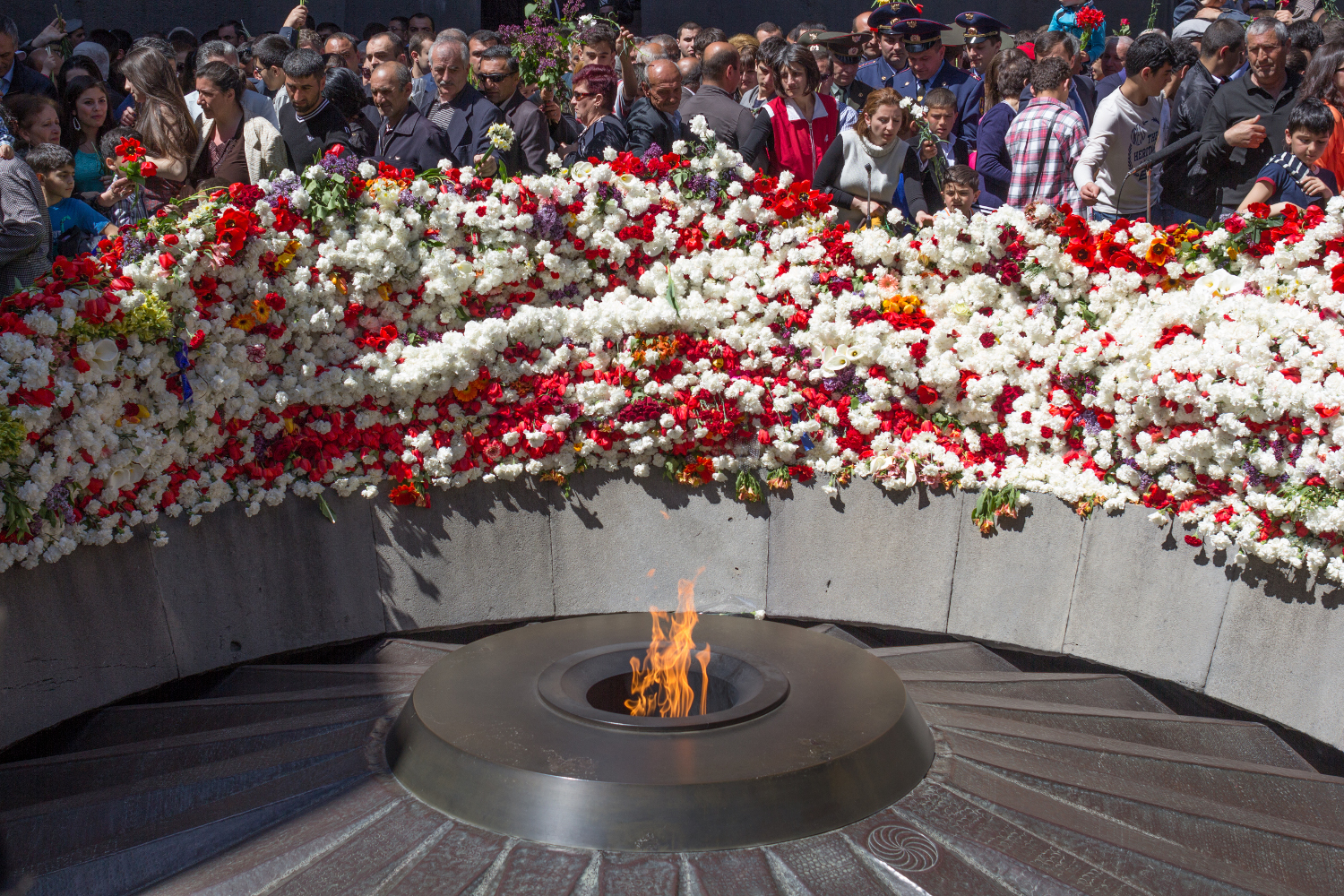by Dahlia Scheindlin
The Anti-Defamation League, American Jewry’s foremost civil rights organization, has made a powerful statement recognizing the Armenian genocide by the crumbling Ottoman regime in the early 20th century. Last Friday, CEO Jonathan Greenblatt posted a blog on the organization’s website in which he stated:
“What happened in the Ottoman Empire to the Armenians beginning in 1915 was genocide.” He reviewed the methods, from death marches to torture, massacre and starvation, and then restated the point: “What happened to the Armenian people was unequivocally genocide.”
The statement will certainly be cathartic for Armenian advocates in the diaspora who have made genocide recognition absolutely central to their national identity – even to a fault, as the highly thoughtful Armenian-American writer Meline Toumani has written. But the vast majority of Armenian activists have been frustrated for years by the reticence of ADL’s longtime previous director, Abe Foxman. Greenblatt ended years of just such equivocation under Foxman’s leadership (though the latter eventually used the word in a 2014 speech). The public support of a major Jewish organization could lend clout to the Armenian attempts to attain Congressional recognition, a cause generally stymied by the sensitivity and importance of U.S.-Turkey relations. That’s why Armenian activists watch for such statements with extreme play-by-play attention.
But the recognition may prove to be more important for Jews and for Israel than for Armenians themselves. It symbolizes a crack, and together with similar developments, perhaps seismic shifts in the relationship between diaspora Jewry and Israeli society.
First, the move breaks with Israeli policy. Israel’s government has long resisted formally acknowledging the term “genocide” for the Armenian experience, for what is widely understood to be political interests in Turkey and Azerbaijan, including powerful economic ties.
Foxman mostly mirrored this resistance. He was apparently disinclined to compromise the Jewish monopoly on the Holocaust, and held purported political concerns for relations between Turkish Jews and their government – these are the reasons given by a former ADL regional director and powerful advocate for recognition, who was ultimately fired for his stance on this issue. Or perhaps Foxman didn’t want to expend political capital on the Congressional recognition campaign. Either way, the ADL today is no longer aligned with Israeli policy on this matter.
Next, Greenblatt not only changed course – he did so just over a week after Israel’s commemoration of Holocaust Day. In recent years, the commemorations in Israel have erupted into debates about whether the experience of genocide belongs uniquely to the Jews or has universal lessons or comparable precedents. Rising nationalism has led Israelis to increasingly vitriolic rejection of the very notion of commonality with others – which apparently threatens not only the self-styled uniqueness of Jewish victimhood, but the very chosenness of Jews altogether. It’s as if the “chosen people” must also be uniquely chosen for death. “The Holocaust is ours,” was the summary of a talk by a popular (and populist) radio talk-show host Irit Linor, railing against drawing universal lessons from the Holocaust.
The debate reached a fever pitch this year, when Holocaust Day commemorations were dominated by debate about the IDF’s deputy chief of general staff, Yair Golan, who compared social trends in Israel today to those of Europe and Germany prior to World War II.
Greenblatt would be fully aware of this trend in Israeli society, and surely he would have considered the reverberations of his position inside Israel.
He must also be aware that of all Israel’s friends and foes in the world, the American Jewish organizational establishment are essentially viewed in Israel as the best friends of all, being both American – our stalwart allies – and our very own kin.
Jewish-American organizational efforts have generally been channeled into steadfast support for Israeli government positions; the AIPAC approach. For decades the reigning ethos was that American Jewish organizations don’t criticize Israel in public, wrote Seymour Reich, a former head of the conservative Conference of Presidents of Major Jewish Organizations.
But Reich was writing (in a Jewish newspaper no less) in order to break that ethos with an impassioned call for Israel to salvage its own democracy, and calling out anti-democratic developments. He cannot be accused of having a political agenda, having long been out of power as the head of the organization. Perhaps even more telling, Bernie Sanders felt his towering political agenda would survive and even gain from taking a position critical of the Israeli government’s policies.
Greenblatt’s statement is even more powerful in a way, lacking explicit criticism of Israel; he didn’t even mention the word. He simply set an example that Jewish leadership for him means choosing a clear and decisive path that is the reverse of Israel’s position on both the Armenian genocide in particular, and the opposite of the “Holocaust is ours” meta-narrative in general.
Zooming out further, his statement carries the connotation that to be Jewish means to be universal, as Rabbi Arik Aschermann wrote here. And the identity of the messenger can be seen as a political missive to Israel whether or not that’s how Greenblatt meant it. The snowballing statement says that Jewish Americans won’t all buy exported Israeli ultra-nationalism, isolationism, aggression or victim-triumphalism wholesale. Jewish Israelis should listen.
Photo: Armenian Genocide memorial
Dahlia Scheindlin is a leading international public opinion analyst and strategic consultant based in Tel Aviv, specializing in progressive causes, political and social campaigns in over a dozen countries, including new/transitional democracies and peace/conflict research in Israel, with expertise in Eastern Europe and the Balkans. This piece is reprinted, with permission, from +972mag.com






Writing in 2004 with a view to debunking claims that the Nazi holocaust was somehow unique and the single historical occurrence of genocide, Dan Stone reports that “Since the days when ‘never again!’ was uttered at the end of the Second World War there have been, according to one estimate, some fifty genocides across the world. . . .” and heaven knows how many more genocides have happened since he made this report (“The Historiography of Genocide: Beyond ‘Uniqueness’ and Ethnic Competition” p. 127). Greenblatt has merely returned the ADL to reality, from which it has been absent for several years. (Incidentally, Foxman wasn’t always meshuganah.) As any public figure who has uttered an inconvenient truth about Israel’s history or Palestine policy knows, Israelis are imaginative revisionists, and if you don’t like their version of history or interpretation of occupation policy, be prepared to have your career and/or character ruined.
The last 10 or 15 years have seen a significant change in holocaust scholarship, and it is now possible to understand the holocaust in context — the context of war, of modernism, and of Europe as a whole. More history buffs and more members of Israeli society and Jewish organizations need to immerse themselves in it.